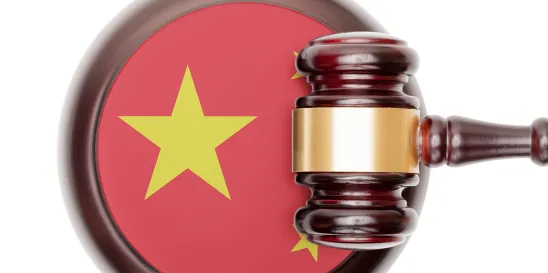The U.S.-China Economic and Security Review Commission recently released the 2023 Report to Congress. With respect to intellectual property law, the Report’s Chapter 2, Section 1 is entitled “Rule by Law: China’s Increasingly Global Legal Reach” and discusses China recent trend of Chinese courts setting global royalty rates in standard essential patent SEP litigation and the concurrent use of anti-suit injunctions to enforce those rates. The relevant section is reproduced below (minus footnotes). The full report is available here.

China’s Courts Back Commercial Interests: Setting Global Licensing Rates through Anti-Suit Injunctions
In 2020 and 2021, China’s courts aggressively issued orders to prevent foreign patent-holders from suing Chinese firms for IP infringement. These orders, called anti-suit injunctions (ASIs), hold plaintiffs in contempt of court in China and may impose fines if they proceed with cases abroad. In common law jurisdictions, ASIs are interim orders to prohibit litigants from initiating or continuing parallel litigation in another jurisdiction so as to minimize friction between courts and prevent cases from being heard in multiple different jurisdictions at once. Chinese courts’ implementation of ASIs differs from this practice in several important respects, demonstrating their politicized nature. ASIs issued by Chinese courts only target foreign litigation and only apply to cases outside of China. They are also highly nontransparent, as many Chinese courts’ decisions in related cases have not been published, and their application does not have a clear legislative basis.
For a sign of China’s courts’ willingness to back Chinese commercial
interests, the country’s recent wave of ASIs in IP-related litigation is instructive: it amounts to a non-independent judiciary advancing an industrial policy objective, namely driving down the fair, reasonable, and nondiscriminatory (FRAND) royalty rates for standard-essential patents (SEPs) owned by overseas companies, thereby reducing the cost of foreign technology inputs for Chinese manufacturers. Mark Cohen, Asia IP project director at Berkeley Center for Law & Technology, notes that “China’s ASI practices have been promoted and endorsed by the highest levels of China’s political and judicial leadership.” Shenzhen Intermediate People’s Court Judge Zhu Jianjun advocates for China to use SEPs to “form countermeasures in international competition . . . [and] build the main battlefield for foreign-related dispute resolution.” Law professors Jorge Contreras and Yang Yu also observe that the global scope of some of China’s ASIs “is more sweeping than any ASI issued in U.S. or other courts in FRAND cases.” While ASIs generally address the jurisdictions in which parallel proceedings are occurring, China seeks global enforcement through its ASIs, employing them to prevent any jurisdiction in the world other than China from determining FRAND rates on valuable SEP patents. As Mr. Cohen described in testimony before the Commission, “These cases often were highly intrusive of the sovereignty of foreign courts to adjudicate patent claims granted in their respective jurisdictions. As patents are territorial, only national courts generally adjudicate local patent claims, unless the parties have otherwise consented, which is rare.”
China’s use of ASIs is an example of China’s courts adapting concepts from foreign legal systems to advance China’s strategic goals, namely the industrial policy objectives described above, and to expand China’s influence in setting global judicial norms.67 By using terminology from other legal systems, China’s courts seek to convey a sense of legitimacy for their highly distorted application of transplanted concepts. Fortunately, China appears to have ceased issuing global ASIs for IP-related cases, after the EU filed a case against China at the WTO in 2022 over its use of ASIs to restrict EU firms from defending their SEPs, to which the United States Canada, and Japan have requested to join as third parties. A panel was composed to hear the case in March 2023.



 />i
/>i
